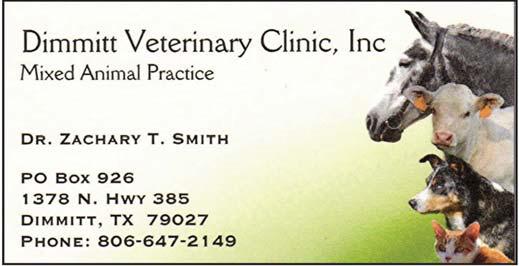Throughout the year, youth across the country prepare and travel to various events, such as livestock shows, rodeos, and fairs, to show their animals.
Because an animal’s performance at an event can be impacted if they are stressed or sick, Dr. Kevin Washburn, a professor of large animal internal medicine at the Texas A&M School of Veterinary Medicine & Biomedical Sciences, offers tips for keeping animals relaxed and healthy every step of the way.
First, owners should ensure that their animals are appropriately vaccinated so that they are healthy enough to travel.
“The best prevention of any disease process is proper vaccinations when they are young and booster vaccines, when necessary,” Washburn said. “Giving your animals booster vaccines about three weeks prior to the exhibition is a great practice for prevention.”
Most importantly, show animals need to be vaccinated against respiratory disease before arriving at an exhibition.
“Respiratory disease is the most common problem in exhibition animals due to the stress of travel, a new environment, and comingling with animals from many different locations and backgrounds,” Washburn said. “More specifically, cattle should be vaccinated against common respiratory pathogens before and at weaning.”
Owners should also prepare trailers in a way that keeps show animals calm and comfortable, since traveling can be stressful for them.
“Trailers should have adequate protection from extreme weather conditions and need to have a non-slip surface on them regardless of whether they are bedded or not,” Washburn said. “Non-slip surfaces prevent animals from slipping, losing balance, and falling in trailers, so it is less likely for animals to be injured.”
Washburn explained that ensuring an animal is as comfortable as possible in their trailer will reduce stress, which is better for their immune system.
“If cattle are tied, they should have enough length of rope to hold their heads in a natural position; for longer trips, cattle should be untied, the floor should be deeply bedded with mats or straw, and there should be enough room for them to lie down,” Washburn said. “For pigs and small ruminants like sheep and goats, there should be comfortable bedding so they can lie down during travel.”
Once animals arrive at the show barn, they will need frequent access to fresh water to prevent dehydration and be fed their normal portion of food since dietary changes can cause digestive issues. Washburn also suggests owners provide fans or misters in warmer months and space heaters in colder months to improve animal comfort.
To maintain an animal’s health at an exhibition and decrease the risk of spreading diseases, especially when surrounded by other animals, Washburn encourages owners to be careful when walking from one animal stall to another because many diseases can be spread through fecal-oral transmission and contaminating bedding with boots and shoes.
As another method of disease prevention, owners should avoid sharing with other animal caretakers their combs, brushes, clippers, feed tubs, water buckets, and tools used to clean bedding and stalls.
Lastly, Washburn pointed out that a show animal’s health should continue to be a priority when they arrive back home and allowing several of rest before returning to training.
By practicing good health management before, during, and after 4-H events, you can ensure that your show animals are healthy and comfortable every step of the way to the exhibition so that they have a successful performance.

